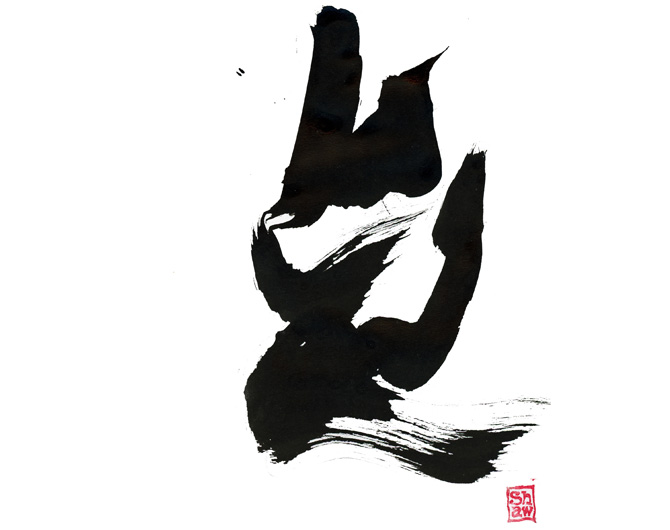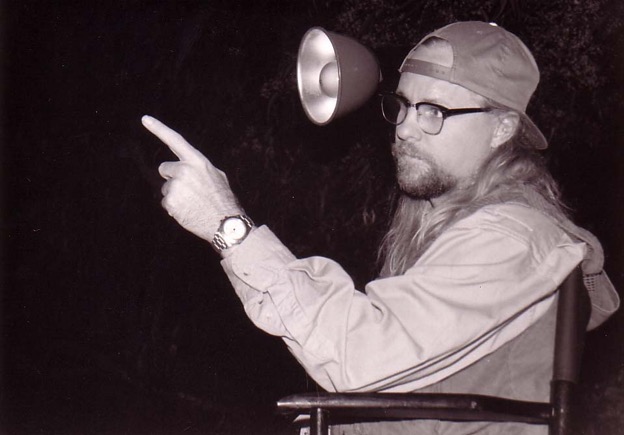Scott Shaw and Zen Filmmaking



Scott Shaw and Zen Filmmaking
Interview with Scott Shaw for Today: Showbiz News: Azerbaijan News Service (2009)
By Tim Talishinsky
Mr. Shaw, your biography mentions that you've visited lots of countries, including Turkey. Turkey and Azerbaijan have common historical roots, same linguistic community and both countries are Muslim. Do you know anything about our country?
First of all, thank you for taking the time to ask me these questions and, please, call me Scott.
Yes, it is true. I have spent a lot of time traveling and I have visited your part of the world many times. I have not yet been to Azerbaijan, however, but I would love to travel to your country.
I certainly have studied the history of Azerbaijan and I know about your great cultural heritage, your very interesting political evolution, and your country's cinema. So, I know about Azerbaijan from that perspective. But, I do not feel that anyone can truly understand a country until they visit it. That is why I hope to travel to your country in the near future.
Recently, our cinema begun to rise, especially on the international arena. But the Zen Filmmaking style, which you happen to be the creator of, is almost unknown to our filmmakers and ordinary people. How did you first come to this fairly new style of filmmaking? How would you describe it to people unfamiliar to it?
The reason I created Zen Filmmaking was to help filmmakers actually get their films made. Many films, especially independent films, begin production but most of them never find their way to completion due to the fact that they run into problems with financing, cast and crew egos, filmmaker disappointment, equipment problems, and so on. Zen Filmmaking makes the process of filmmaking much easier so that more films can actually be completed.
Zen Filmmaking is about spontaneous creativity. It is about removing as many obstacles from the filmmaking process as possible. This allows a filmmaker to create a film in the easiest, most efficient, and most creative manner possible.
At the heart of Zen Filmmaking is the fact that no screenplay is used in the creation of a film. The reason that a Zen Film uses no script is because with a script the filmmaker is locked into a process where there is very little room for change. With no room for change, then any new inspiration, which may occur during the filming process, is not allowed to take place -- as the cast and crew are only prepared for what they are expecting to happen next. Thus, the magic of spontaneous creativity is lost.
You may ask, "With no script, how does a filmmaker get his or her story told?" When making a Zen Film what you do is to come up with an overview of a story. Then, you cast the various characters for your film and take them to the location where you want to film. Finally, you set up the scene, tell your actors what information they are suppose to convey in that scene, and then you simply allow them to tell your story in their own words. If they need guidance, you give them only the most minimal direction. From this, the performances in the film become very natural and the story gets told with the least amount of hindrance from having to overcome the obstacles of traditional formalized filmmaking.
Zen Filmmaking is cinematic art in its purest form. It is allowing whatever occurs during the filmmaking process to simply exist in its own perfection. With no expectations, there are no disappointments.
When talking about Zen Filmmaking it seems so easy, yet on the spot while working, it probably is a lot harder. How did the experienced actors like William Smith, Robert Z'Dar and Joe Estevez were involved in your style of filmmaking? Was there some sort of a special approach to them?
Like everything else in life, Zen Filmmaking is easy if you allow it to be easy and complicated if you make it complicated. But, what you are saying is very true. Most people need structure. Most people need definition. Zen Filmmaking is anti-structure and anti-definition. So, Zen Filmmaking is not for everyone. It is for those filmmakers who want to embrace filmmaking freedom and cinematic enlightenment and to let go of the outdated methods that are believed to be the only path to creating a film.
As time has progressed, more and more filmmakers have embraced the freedom of Zen Filmmaking and have allowed this path of creation to guide their films. The reason this style of filmmaking has continued to find new supporters is that by leaving behind structure and embracing spontaneity in the filmmaking process any film becomes much more natural, the performances of their actors become much more believable, the camera work becomes much more artistic, and it is easier and more fun to get a film completed.
In regard to actors, when working with actors, no matter how famous or how highly trained, the majority of them love the process of Zen Filmmaking. Why? Because in Zen Filmmaking they do not have to memorize scripted dialogue, they are simply allowed to express the words and the emotions of their character in the manner that they feel is most appropriate. So, they actually get to put their own signature on the movie.
To the martial arts… Mr. Shaw, you used to say that martial arts is something you do, not something you are. Yet, you started your training at a very early age, became very well known in the martial arts world, even taught both Hapkido and Taekwondo. What was martial arts to you when you first started, and what it is to you now?
I began studying the martial arts when I was very young because I grew up in one of the worst areas of Los Angeles. Violence was everywhere. What martial arts gave me was a means to cope and protect myself from what was going on around me. From my early training forward my teachers always taught me about integrating meditation and spirituality in the martial arts. As I got older, the problem I saw with the modern martial arts is that they became very ego driven. It became all about the physical aspects of rank and fighting and the spiritual understandings of the martial arts began to be lost. Now, this is certainly not the case with everyone, but from a broad perspective, that is what I witnessed. For this reason I make the statement, "Martial arts is something I do, it is not something I am," as I do not want to be associated with the aggressive, non-spiritual aspects of the martial arts.
For me, though the physical training of the martial arts is a great way to stay in shape and protect yourself if you need to, the martial arts is more about being a pathway to a spiritual sense of body and mind unification. It is not simply about violence or who can beat up whom. It is about raising your consciousness to a new level of understanding. This is what I try to convey in the books I have written on the subject.
Being a moviemaker, a musician, a writer, what are the future plans for Scott Shaw? Writing another book? New music album? Maybe another film is in the making?
I feel I have been very blessed in that I have been able to embrace the various aspects of the arts throughout my life. In terms of future plans, I write, paint, photograph, play music, act, and I, of course, continue to make films. So, I am always doing something and always looking for new forms of art to explore. As things in my life change so quickly, if you want to know what is next, just check my website, scottshaw.com. Thanks for asking!
This interview was also published in English on BZ Film.com. Here's a link to the archived version of this interview:
Scott Shaw: Reason I created Zen Filmmaking was to help filmmakers actually get their films made
Here's a link to the archived version of the original article in Russian:
Шоу-бизнес » Создатель «Дзен фильмов» Скотт Шоу
Copyright © 2009 — All Right Reserved